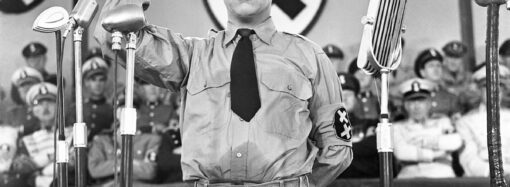Some political activists argue for repeal of the 17th amendment. In other words, they want to end popular elections of U.S. Senators and return to the original constitutional system of election by state legislatures.
Repeal advocates argue that the pre-17th amendment system better preserved federalism than does direct election.
Whatever the theoretical merits of their position, those activists need to either answer some hard questions or apply their energies elsewhere.
The first question is how they are going to overcome a big reality of practical politics: Popular election is, well. . . popular. In 2010, the revelation that a Colorado U.S. Senate candidate had once favored repeal probably cost him the election.
Yet, getting a constitutional amendment passed requires super-majority support, not super-majority opposition.
Advocates also have to address an institutional problem: The U.S. Senate, consisting as it does of politicians who owe their position to direct election, is unlikely to consent to a congressional resolution repealing the electoral rules that got them elected.
So that means that any repealer will have to be proposed, or at least threatened, by a convention of the states under the Constitution’s Article V. But some of the most fervent supporters of repeal strongly oppose such a convention. In other words, repeal advocates are not only a minority, they are a minority strategically divided among themselves.
Finally, repeal advocates need to address some real problems that plagued the former system.
What problems? Basically three:
1. Smaller electorates (e.g., state lawmakers) are easier to corrupt than larger electorates (e.g., the entire people). After 1850, cases multiplied in which candidates purchased Senate seats from state lawmakers. Some outrageous national scandals helped provoke the move to direct election.
2. State legislatures often couldn’t agree on a Senate candidate. For example, one legislative chamber might favor one candidate while the other chamber favored another. The result was deadlock. Legislatures sometimes balloted for months on end while their state remained under-represented in Congress. A deadlock delayed the selection of New York’s senators in the First Congress, and the phenomenon became more and more common as time wore on. Between 1891 and 1905—a period of only 14 years—there were 45 deadlocked senatorial elections in 20 different states!
Deadlock often was broken by “stampeding”—last-minute election of a dark horse whom no one previously had thought to be of senatorial timber. In other words, a procedure that originally had produced Senators like Daniel Webster and Thomas Hart Benton eventually produced a bunch of non-entities.
3. Because people “voted” for a Senate candidate by voting for state legislative candidates, federal and state issues became bundled, with state issues often entirely submerged. Think of the 1858 Illinois legislative races. Does anyone remember any of the issues in that campaign other than the issues that divided U.S. Senate candidates Lincoln and Douglas?
Put another way, legislative election of Senators began to hurt federalism because state elections lost their distinctive character among national issues.
These were not minor problems. When a politician votes to reduce his own power, you know things are bad. But that’s what state lawmakers did. First, they begged Congress to propose a direct-election amendment, then they established de facto direct election systems in some states, and finally they began an application campaign for an Article V amendments convention. By 1913, they were one state short of the necessary 2/3. The only reason we didn’t have a convention is that Congress caved in and proposed the 17th amendment itself.
My guess is that most repeal advocates are unaware of either the problems with legislative election of Senators or with possible solutions. For example, they could point out that Congress could reduce the danger of deadlock by using its constitutional authority (under Article I, Section 4, Clause 1) to adopt efficient rules by which legislatures could choose Senators. On the other hand, though, it’s fair to point out that Congress could have done this under the old system, but didn’t. In fact, one of the few election laws it passed may have made the situation worse.
Repealing direct election is probably a will o’ the wisp. If advocates can’t effectively answer the questions listed above, then they really should be seeking more feasible reforms.







